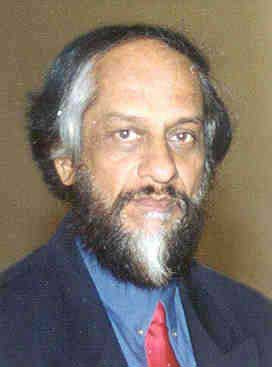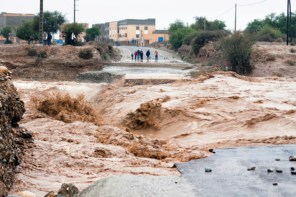
Scientists have reacted with dismay at a letter sent out by the Intergovernmental Panel on Climate Change (IPCC) advising them not to talk to journalists. The letter was published just two days before the publication of a review of the “Climategate” affair that criticized researchers at the University of East Anglia for lacking openness.
IPCC chairman Rajendra Pachauri sent the letter on 5 July to each of the 831 experts selected to take part in preparing the panel’s fifth assessment report (AR5) on climate change. This report is due to be published in 2013 and 2014 and follows on from the fourth assessment released in 2007, which concluded that global warming is real and very likely due to increasing levels of greenhouse gases in the atmosphere due to human activities. The assessment exercise is made up of three working groups that will deal with the fundamental science and impacts of climate change as well as mitigation and adaptation strategies.
In his letter Pachauri wrote that increased scrutiny of the IPCC “imposes on us a heavy responsibility to see that errors of any kind are completely eliminated from the AR5” and that as a result the panel would have to “work diligently and with a level of rigour perhaps not seen in previous reports”. (The IPCC having come under heavy criticism earlier this year for erroneously stating in the 1997 report that Himalayan glaciers could disappear by 2035.) Pachauri then went on to offer his “sincere advice” that researchers “keep a distance from the media” and that any questions about that researcher’s working group be directed to the co-chairs of that group while general queries about the IPCC should be forwarded to the panel’s secretariat.
Peter Cox, a climate modeller at the University of Exeter in the UK and a member of the science working group, believes that Pachauri’s advice is fairly routine. He says that working group members are free to talk to journalists about their own work but that they should avoid talking about IPCC procedure because it is so complex.
However, climate modeller Ben Kirtman, of the University of Miami in the US, also a member of the science working group, describes the letter as “extremely poorly worded” and “poorly timed”. The letter was sent out just two days before the publication of the review of Sir Muir Russell into the Climatic Research Unit at the University of East Anglia following the leak of compromising e-mails sent by members of the unit. Russell concluded that the researchers’ “rigour and honesty as scientists are not in doubt” and that his review team “did not find any evidence of behaviour that might undermine the conclusions of the IPCC assessments” but did admonish the researchers and the university for “failing to display the proper degree of openness”.
Kitman maintains that Pauchari should “have simply reminded researchers that they don’t formally represent the IPCC”, a stance that Pauchari himself took in response to an e-mail from New York Times journalist Andrew Revkin on 9 July. “Most of my colleagues recognize that the world is watching, in fact the world might be spying,” continues Kitman. “We are trying to carry on and be as objective and transparent as humanly possible.”
Writing in his blog, University of South Carolina geographer Edward Carr, a member of the adaptation working group, accused the IPCC of having a “bunker mentality” and said that the only way the organization can avoid future damaging episodes like “Climategate” is to operate with “complete openness”.



